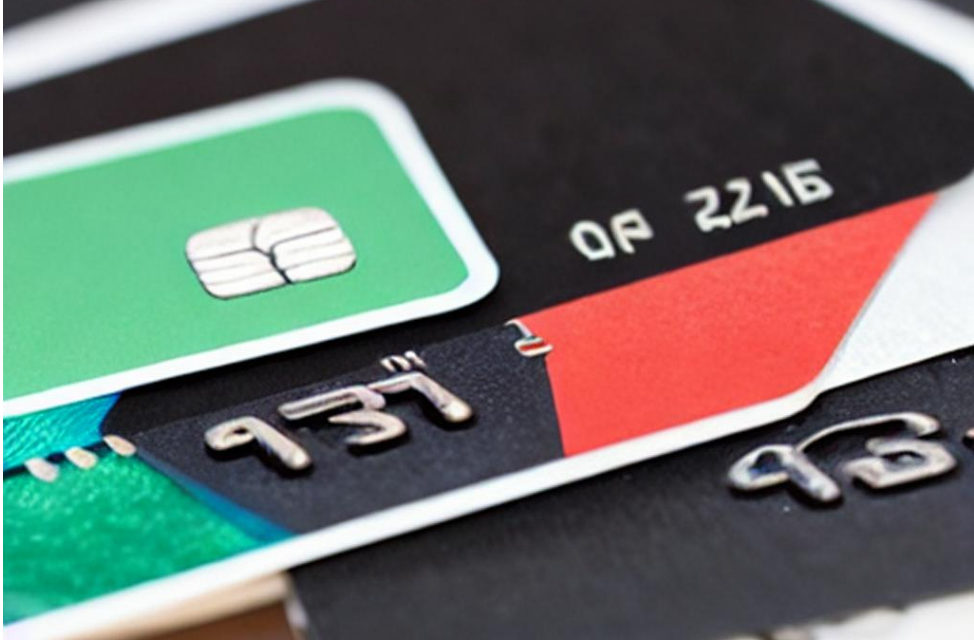Welcome to the credit card bonus starter guide!
The majority of credit cards offer sign-up bonuses. Generally the bonuses will either come in the form of a statement credit on your new card, or as points for the card’s rewards system that can be redeemed through their network.
These bonuses are often very good. Hundreds of dollars in value is the norm, and I’ve seen some that are near $1000.
These introductory bonuses come on top of the ongoing value that a good card provides year after year.
Whether you’re already racking up points or whether you’ve never gotten a bonus before, I hope this guide will be a useful resource for you.
Let’s get started!
Credit Card Bonus Starter Guide – Spend
Almost universally, the way to qualify for credit card sign-up promos is spend.
The terms of the promo will require you to spend a certain amount of money, generally within a given time period.
These spending requirements are sometimes high, and it’s to good to have a plan for meeting them before you apply for the card. Doing that will help you avoid wasting money trying to get the bonus.
Sometimes people try to get around the spending requirements by buying things that can be used like cash. Gift cards are a classic example. If they do that, they’re not really spending money, they’re just turning it into a different form.
That’s called manufactured spending, and credit card companies don’t like it. The company they might issue a warning, deny the bonus, or even close the card entirely.
Credit Card Bonus Starter Guide – Prequalified and preapproved offers
You’ve probably gotten envelopes in the mail that advertise credit cards to you. They tell you that you’re already prequalified and all you need to do is sign up.
But what does that mean exactly?
Credit card companies buy info about potential customers from other businesses. If the company thinks that you might be a good match based on the info they have then they might send you a prequalified offer. Getting one of those offers doesn’t mean you’re guaranteed to have your application approved though.
Often times the info the company has on you is only partial. They might, for example, only know your credit score. Once you fill out an application they’ll make the final decision.
Prequalified vs preapproved
The difference between prequalified and preapproved isn’t very clear.
In theory preapproved is stronger and should mean you almost certainly will get the card if you apply.
In practice there’s no agreed on definition of these terms and each company uses their own vocabulary.
A general rule of thumb is to consider these offers, whatever terms they use, as an expression of interest on the part of the company. It’s an opening gambit based on limited info. Once they get more information from your application they might be interested or they might not.
Credit Card Bonus Starter Guide – The Sign-Up Process
Most credit card applications are extremely similar.
They’ll ask for personal information, like your name, address, and social security number.
They’ll also ask questions about your income, employment, and about things like your monthly rent or house payment, or your average expenses.
The issuers ask these questions because they want to estimate your debt-to-income ratio. With that they can guess how likely it is that you will be able to pay the bills on the credit card.
At the end of the application they’ll ask you to swear that the information is correct and then submit the application.
Once it’s submitted they’ll generally do a hard credit inquiry, which will affect your score. With some cards, especially cards aimed at building credit or meant for people who have little history, the hard inquiry won’t happen.
They may make a decision instantly (some companies advertise that) or it may take more time for them to notify you about what they decide.
Card match tools
Some credit issuers will have tools on their websites to see what cards you prequalify for.
If the company has this, use it. This will help you avoid applying for a card with a high chance of rejection.
Credit Card Bonus Starter Guide – Rejection

Rejection, according to the Picsart AI.
So what happens if DUN DUN DUN they reject your application?
You find a quiet room and cry![]()
But besides that, the issuer is required by law to send you a letter explaining the rejection. They’ll state a reason, and that’s very helpful for future applications. It could give you an idea of what to improve to have a chance at the card.
Beyond that, there’s also something you can do to have a chance at being accepted anyway.
Credit Card Bonus Starter Guide – Reconsideration
Most credit card issuers list a phone number on their site for the reconsideration line. If you get a rejection notice in the mail, you can call this line to speak with a credit analyst and plead your case.
Why might they change their decision?
If you provide some information that the company doesn’t have it could improve the odds. Maybe you forgot to include a secondary source of income, or maybe there were problems verifying your identity and you could easily provide documents.
Even if that’s not the situation it’s still a good idea to contact the reconsideration line after being rejected. The worst case scenario is a no, which is what will happen if you do nothing. If you talk you have a possibility of convincing the credit analyst that you’d be a good customer.
Think of reasons why they’d like you. If you have a great payment history then that’s a positive. Or maybe you want to use the card all the time-they like cards to be used.
One thing it’s best not to talk about is the sign-up bonus. If the analyst thinks you only want quick cash they’re less likely to view you as a promising customer.
And make sure to be polite! Remember, the person you speak with will have a large say in whether you are approved or not. It can be a bit of tense situation, so don’t make it harder for them.
Credit Card Bonus Starter Guide – Poor & Limited Credit
Most rewards credit cards that offer sign-up bonuses are only available to those with good credit or better.
There are exceptions, but there are fewer options and the bonuses tend to be smaller.
The best thing to do if your credit history is lacking is learn about credit scores and focus on improving your own.
Starter cards aren’t as exciting, but they’re a pathway to better rewards down the road.
And you can still participate some! I’ll feature starter cards with good programs right alongside the others.
Tips
1
Don’t apply for too many credit cards at the same time. Issuers will view that as risky behavior and your credit score might suffer.
2
Know your credit score. You’ll have a much easier time if you know what range of cards you have a chance to get.
3
Have a plan to meet the spending requirements. Don’t get stuck losing money on the deal!
4
Always read the full specs so you know what you’re getting into. Nobody wants to be surprised by an annual fee they forgot about.
5
If your application gets rejected, talk to the reconsideration line. The worst thing they can say is no. Be polite!
6
A piece of general credit card advice: the best way to avoid losing money using credit cards is to avoid carrying a balance. The monthly interest will quickly eat your bonuses. Paying your balance off in full each month will prevent this.
Useful Terms
Annual Fee
Though credit cards don’t tend to have a monthly fee like bank accounts, some do have an annual fee, which you pay for…the privilege of holding the card.
Debt-To-Income Ratio
Also know as DTI, this ratio is calculated by dividing your total monthly debts by your gross monthly income. Credit card companies use this as an estimate of creditworthiness.
Prequalified, Preapproved
The credit card issuer thinks, based on limited info, that you may qualify for the card. Not a sure thing.
Reconsideration Line
The phone number to call if your application is rejected. A credit analyst will speak with you and you can plead your case.
Spend
Slang for the spending required to meet the terms of a given sign-up bonus.
Thanks for reading!
I’ll continue to expand and tweak the credit card bonus starter guide, so check back from time to time.
As always, feel free to make comments or ask questions.

